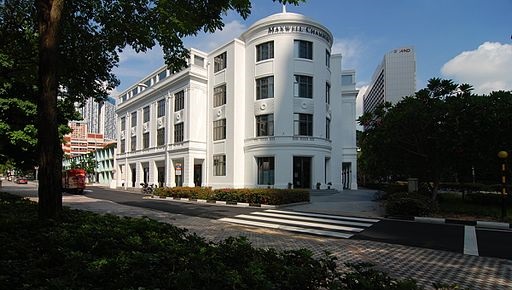In today’s globalized economy, businesses often engage in contracts that span multiple countries and jurisdictions. While international trade brings opportunities, it also carries the risk of disputes arising from contractual misunderstandings, differing legal frameworks, or regulatory inconsistencies. Resolving these conflicts through traditional litigation can be challenging due to jurisdictional issues, cultural differences, and procedural complexities. This is where International Arbitration Singapore plays a crucial role, offering a neutral and efficient mechanism to resolve disputes across borders.
Understanding International Arbitration in Singapore
International Arbitration Singapore refers to the process where parties from different countries agree to settle disputes through arbitration in Singapore. Singapore has emerged as a leading hub for international arbitration due to its strategic location, modern legal framework, and commitment to neutrality and fairness.
The arbitration process allows parties to select arbitrators with relevant expertise, design flexible procedures, and maintain confidentiality—benefits particularly important for cross-border commercial disputes. Singapore’s robust legal infrastructure ensures that arbitration awards are enforceable both domestically and internationally under treaties such as the New York Convention.
Key Features of International Arbitration
Neutrality and Impartiality
Neutrality is critical in international disputes. Parties often prefer Singapore because it provides an impartial forum with a legal system recognized for its independence and integrity. Arbitrators are chosen for their expertise and impartiality, ensuring confidence in the process.
Flexibility of Procedures
International arbitration allows parties to tailor procedures according to their needs. This includes timelines, evidence submission methods, and language of proceedings. Flexibility ensures that disputes are resolved efficiently while accommodating the complexities of cross-border issues.
Confidentiality
Maintaining confidentiality is a major advantage of arbitration. Sensitive commercial information, trade secrets, and financial data are protected from public exposure, unlike court litigation, which is typically open to the public.
Expertise of Arbitrators
Parties can appoint arbitrators with specialized knowledge relevant to their dispute, whether in construction, finance, international trade, or technology. This ensures informed decisions that reflect industry-specific standards and legal norms.
Common Applications of International Arbitration
Commercial Contracts
International business agreements, including supply chain arrangements, licensing deals, and joint ventures, frequently include arbitration clauses to resolve potential disputes efficiently.
Investment Disputes
Arbitration provides a neutral platform for resolving disputes between investors and host states, protecting investment interests and avoiding local court biases.
Construction and Engineering Projects
Cross-border construction projects often involve multiple stakeholders, technical complexity, and high stakes. Arbitration in Singapore offers expert-led dispute resolution while minimizing project delays.
Shipping and Maritime Disputes
Singapore’s strategic position as a global shipping hub makes it a preferred venue for maritime arbitration, including disputes over freight, charter parties, and cargo claims.
The International Arbitration Process
Arbitration Agreement
The process typically begins with an arbitration agreement, often included in contracts as an arbitration clause. This agreement outlines the rules, location, and selection process for arbitrators.
Appointment of Arbitrators
Parties select one or more arbitrators based on expertise, experience, and neutrality. Panels can include international experts to address cross-border legal and technical issues.
Hearings and Evidence
Arbitration hearings provide a structured platform for presenting evidence, witness testimony, and legal arguments. While less formal than court proceedings, arbitrators ensure procedural fairness.
Award and Enforcement
After reviewing all evidence, the arbitrator issues a written award that resolves the dispute. Singapore’s legal framework ensures enforceability of awards both domestically and internationally under conventions like the New York Convention.
Advantages of Choosing Singapore for International Arbitration
- Strategic Location: Positioned in Asia, Singapore is easily accessible for international parties.
- Robust Legal System: Singapore provides a transparent and reliable legal framework supporting arbitration.
- Experienced Arbitration Institutions: Organizations such as the Singapore International Arbitration Centre (SIAC) offer professional support and recognized procedural rules.
- Multilingual Capacity: Singapore accommodates hearings and documentation in multiple languages, facilitating cross-border disputes.
- Cost and Time Efficiency: Structured procedures reduce delays and minimize the costs associated with protracted litigation.
Challenges in International Arbitration
- Costs: While more efficient than litigation, complex disputes involving multiple parties or international experts can be expensive.
- Limited Appeal Options: Arbitration awards are usually final with restricted grounds for appeal.
- Enforcement Across Borders: While Singapore supports enforceability under international conventions, practical enforcement may require navigating foreign legal systems.
Best Practices for International Arbitration
- Draft clear arbitration clauses in contracts, specifying the rules, venue, and procedural expectations.
- Maintain accurate and comprehensive documentation for arbitration proceedings.
- Select arbitrators with expertise in the subject matter and familiarity with international legal standards.
- Ensure compliance with Singaporean arbitration laws and relevant international treaties for enforceability.
- Understand procedural flexibility and adapt strategies accordingly to maximize efficiency.
Conclusion
International Arbitration Singapore has become a preferred choice for businesses seeking efficient, neutral, and enforceable dispute resolution across borders. By combining procedural flexibility, expert arbitrators, confidentiality, and enforceable outcomes, it offers a practical alternative to traditional litigation. Whether for commercial, investment, construction, or maritime disputes, Singapore provides a trusted arbitration hub that safeguards interests, preserves relationships, and delivers effective resolutions. Proper planning, careful selection of arbitrators, and thorough preparation are essential to fully leverage the benefits of international arbitration in Singapore.




